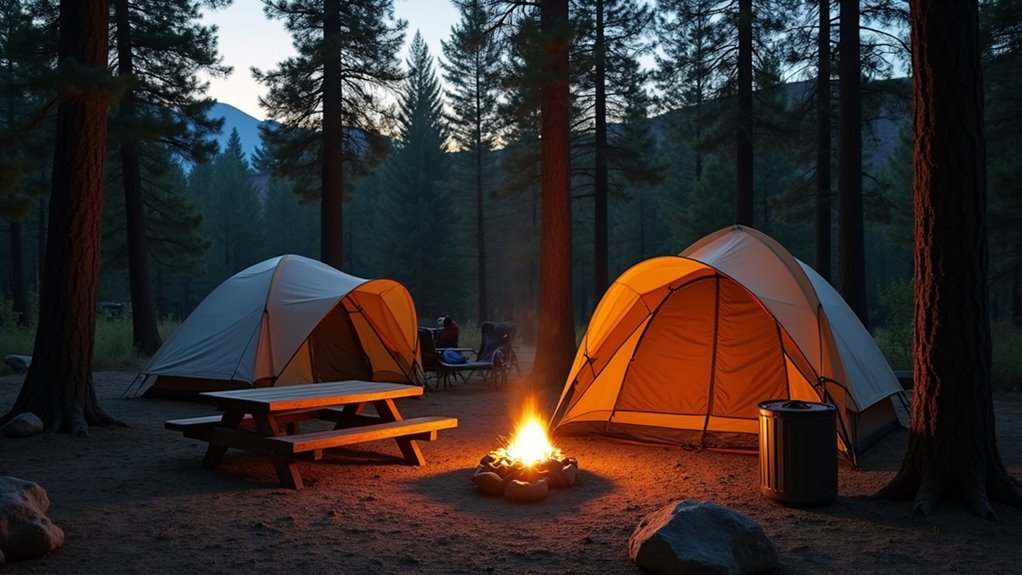Physical Address
304 North Cardinal St.
Dorchester Center, MA 02124
Physical Address
304 North Cardinal St.
Dorchester Center, MA 02124

Outsmart persistent raccoons and cunning bears with proven strategies that go beyond basic food storage—discover why your current methods aren't enough.
You’ve packed your gear, planned your route, and picked the perfect campsite—but you haven’t considered the local wildlife that sees your food as their next meal. Raccoons, bears, and other opportunistic animals don’t respect your camping boundaries, and they’re far more persistent and clever than most campers realize. The strategies that work require more than just tossing your cooler in the tent, and the consequences of getting it wrong extend far beyond a ruined dinner.

While you’re settling in for a peaceful night under the stars, raccoons and other wildlife are likely planning their own evening activities—with your campsite as the main attraction. These masked bandits, along with bears, squirrels, and other curious creatures, view your food supplies as an all-you-can-eat buffet. Taking proactive steps to secure your campsite isn’t just about protecting your supplies—it’s about keeping both you and wildlife safe.
Your food storage strategy makes or breaks your defense against nocturnal visitors. Never leave food, toiletries, or scented items in your tent. These animals have incredibly keen senses of smell and can detect food odors from considerable distances. Instead, use bear canisters or hang your food at least 12 feet high and 6 feet from tree trunks.
Smart food storage is your first line of defense—keep scented items out of tents and use proper bear-safe methods.
If you’re car camping, store everything in your vehicle’s trunk or hard-shell storage containers with tight-fitting lids.
Clean up immediately after cooking and eating. Wash dishes thoroughly and dispose of grease and food scraps properly—never dump them around your campsite. Wipe down picnic tables and cooking surfaces with disinfectant to eliminate lingering odors. Even small crumbs can attract unwanted visitors, so sweep your eating area thoroughly.
Create physical barriers around your campsite when possible. Raccoons are excellent climbers but struggle with smooth surfaces. Wrapping duct tape sticky-side-out around cooler handles makes them difficult to open. You can also place coolers inside your vehicle or secure them with bungee cords to immovable objects.
Make noise strategically to deter animals from approaching. Motion-activated lights or noise makers can startle animals before they reach your food supplies. However, don’t rely solely on these devices—determined animals often overcome their initial fear once they catch scent of food.
Choose your campsite location wisely. Avoid areas with obvious signs of animal activity like scattered trash, claw marks on trees, or well-worn animal trails. Camp away from water sources where animals frequently travel, and don’t set up near berry bushes or other natural food sources.
Keep a clean camp throughout your stay, not just at night. Animals scout during daylight hours too, marking potential food sources for later visits. Store garbage in animal-proof containers or your vehicle, and never feed wildlife intentionally—it teaches them to associate humans with food, creating dangerous situations for future campers.
Remember that prevention is always easier than dealing with determined animals who’ve already discovered your campsite offers easy meals. Following Leave No Trace principles ensures you pack out all trash and food waste, preventing animals from becoming habituated to finding easy meals at campsites.
You might think these precautions seem excessive for a simple camping trip, but imagine waking up to your tent shredded and food scattered everywhere. Don’t let one lazy moment ruin your entire adventure. You’ve invested time and money in this experience, so protect it by consistently securing your food, cleaning immediately after meals, and choosing smart campsites. These habits become second nature once you’ve seen what wildlife can do to an unprepared camp.